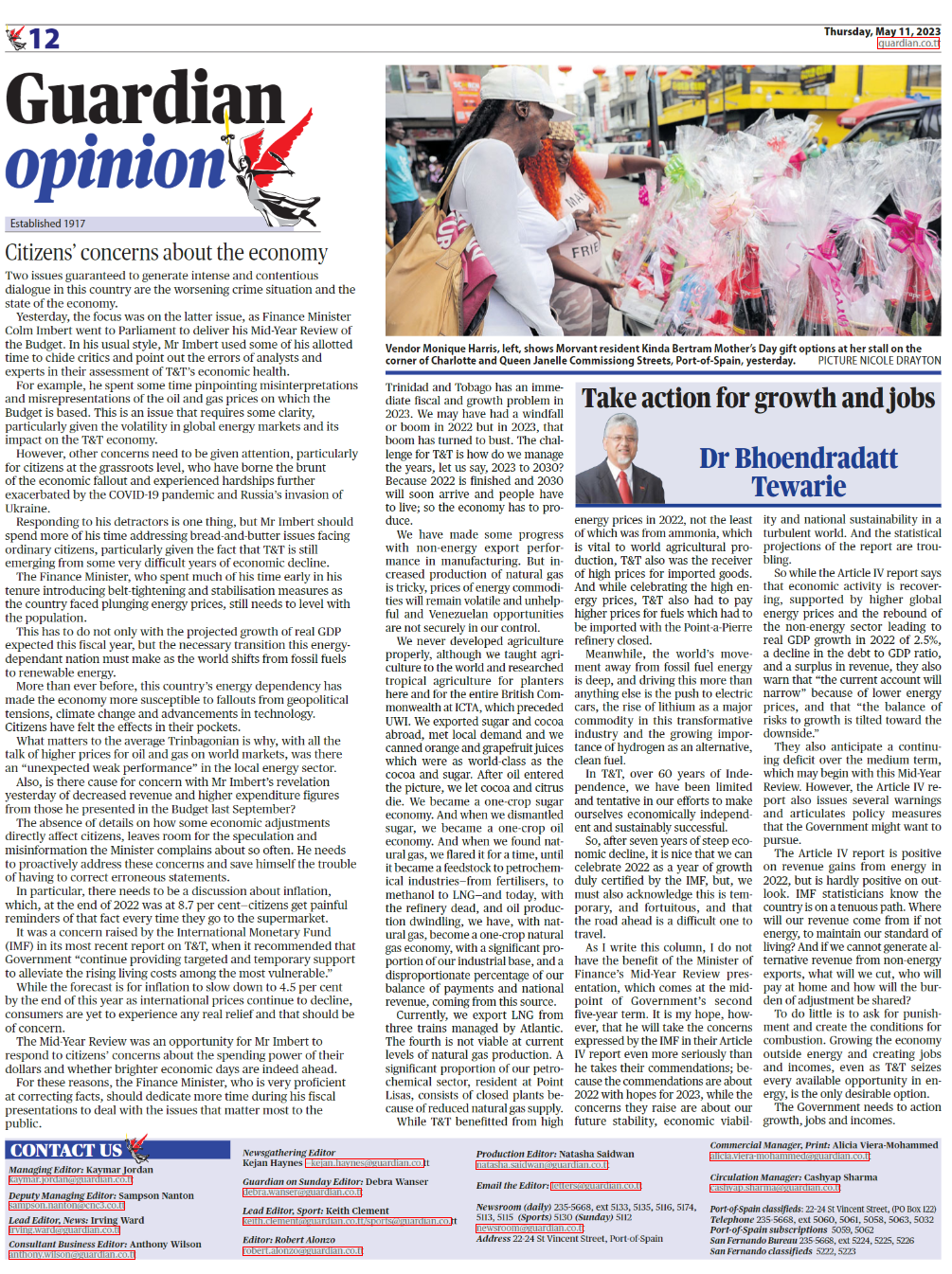Citizens’ concerns about the economy
Two issues guaranteed to generate intense and contentious dialogue in this
country are the worsening crime situation and the state of the economy.
Yesterday, the focus was on the latter issue, as Finance Minister Colm Imbert
went to Parliament to deliver his Mid-Year Review of the Budget. In his usual
style, Mr Imbert used some of his allotted time to chide critics and point out
the errors of analysts and experts in their assessment of T&T’s economic
health.
For example, he spent some time pinpointing misinterpretations and
misrepresentations of the oil and gas prices on which the Budget is based.
This is an issue that requires some clarity, particularly given the volatility in
global energy markets and its impact on the T&T economy.
However, other concerns need to be given attention, particularly for citizens
at the grassroots level, who have borne the brunt of the economic fallout and
experienced hardships further exacerbated by the COVID-19 pandemic and
Russia’s invasion of Ukraine.
Responding to his detractors is one thing, but Mr Imbert should spend more
of his time addressing bread-and-butter issues facing ordinary citizens,
particularly given the fact that T&T is still emerging from some very difficult
years of economic decline.
The Finance Minister, who spent much of his time early in his tenure
introducing belt-tightening and stabilisation measures as the country faced
plunging energy prices, still needs to level with the population.
This has to do not only with the projected growth of real GDP expected this
fiscal year, but the necessary transition this energydependant nation must
make as the world shifts from fossil fuels to renewable energy.
More than ever before, this country’s energy dependency has made the
economy more susceptible to fallouts from geopolitical tensions, climate
change and advancements in technology.
Citizens have felt the effects in their pockets.
What matters to the average Trinbagonian is why, with all the talk of higher
prices for oil and gas on world markets, was there an “unexpected weak
performance” in the local energy sector.
Also, is there cause for concern with Mr Imbert’s revelation yesterday of
decreased revenue and higher expenditure figures from those he presented
in the Budget last September? The absence of details on how some economic
adjustments directly affect citizens, leaves room for the speculation and
misinformation the Minister complains about so often. He needs to
proactively address these concerns and save himself the trouble of having to
correct erroneous statements.
In particular, there needs to be a discussion about inflation, which, at the end
of 2022 was at 8.7 per cent—citizens get painful reminders of that fact every
time they go to the supermarket.
It was a concern raised by the International Monetary Fund (IMF) in its most
recent report on T&T, when it recommended that Government “continue
providing targeted and temporary support to alleviate the rising living costs
among the most vulnerable.”
While the forecast is for inflation to slow down to 4.5 per cent by the end of
this year as international prices continue to decline, consumers are yet to
experience any real relief and that should be of concern.
The Mid-Year Review was an opportunity for Mr Imbert to respond to
citizens’ concerns about the spending power of their dollars and whether
brighter economic days are indeed ahead.
For these reasons, the Finance Minister, who is very proficient at correcting
facts, should dedicate more time during his fiscal presentations to deal with
the issues that matter most to the public.

